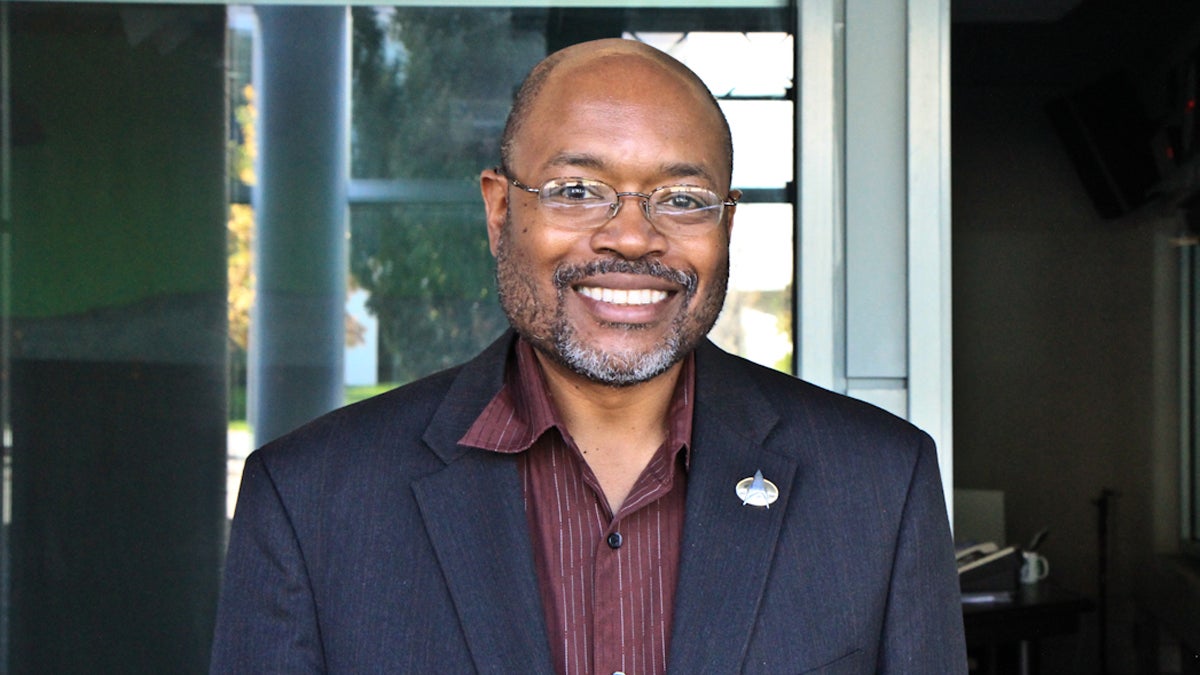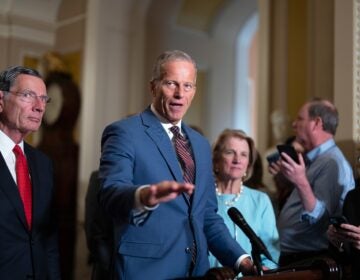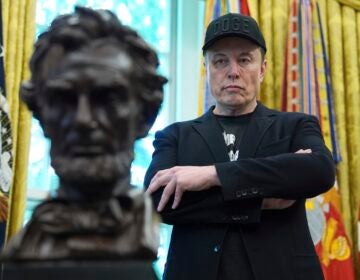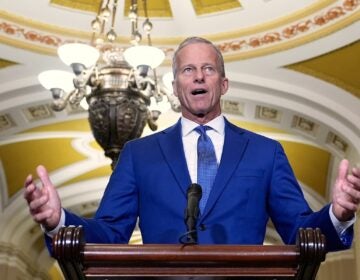Our great society remains another dream deferred
Listen
Guest commentator Rev. Steven Lawrence is administrative assistant to the pastor of the White Rock Baptist Church. (Kimberly Paynter/for NewsWorks)
This week, Rev. Steven Lawrence, administrative assistant to the Pastor of the White Rock Baptist Church, joins NewsWorks as a guest commentator for Centre Square.
I grew up loving science but I was fascinated by science fiction. I’d gush over the Time magazine greatest inventions issue and then I’d dream about traveling to a strange new world at warp speed. I was excited just thinking about the future.
My mom took me to the New York World’s Fair in 1964, and I remember our visit to the “Tomorrow Land” exhibit. I saw flying cars and futuristic homes with every possible automated convenience. And do you remember that 1960s cartoon vision of the future, “The Jetsons”? That technology is with us right now. George Jetson made video phone calls on a huge flat screen (Skype); Jane had a robot that cleaned the house (Roomba) and Judy and Elroy did their homework on computers.
I believe there was an implied promise in those high-tech visions. A promise not only of material advances but societal improvements as well. Not just better gadgets but a better life, with some measure of equality.
So, what happened? Right now, at the start of the 21st century, our technology dreams are coming true, but our hopes for a great society have stalled.
No, they have died.
Yes, we have mapped the human genome, and we can imagine a day when drugs are personalized using one’s own DNA. Yes, we invented a tablet that can give me access to thousands of books. Yet, public education in this country continues to be ridiculously underfunded, and some would resurrect the argument that education is a privilege for a few, not a guarantee for all.
Tomorrow Land and the Jetsons have let me down.
I am puzzled, frustrated and upset. I have always seen a powerful inventive spirit in America, but when it comes to envisioning a just and inclusive human community, too often our imagination is feeble, uninspired and not up to the task.
To be fair, it may be easier to invent a self-inflating tire than it is to reduce the number of illegal hand guns on the street. But I also think that hope becomes less lofty as people become more selfish. America’s own history painfully demonstrates that some of us can imagine a positive future for ourselves and a malicious one for others. Remember, there were no people of color in that Jetsons future.
So, what does it take to imagine a hopeful future? Positive creative imagination is in us; not everyone uses it.
It’s not easy, it’s the hardest work there is. It takes courage and compassion to do the right thing with empathy for someone else. Gene Roddenberry’s “Star Trek” imagines a world where diverse people work together. Martin Luther King, Jr., on the night before his assassination, spoke hopefully about the future. Our most righteous dreams, our most inclusive hopes for the world, may feel beyond our grasp, but they are not beyond our imagination.
WHYY is your source for fact-based, in-depth journalism and information. As a nonprofit organization, we rely on financial support from readers like you. Please give today.




